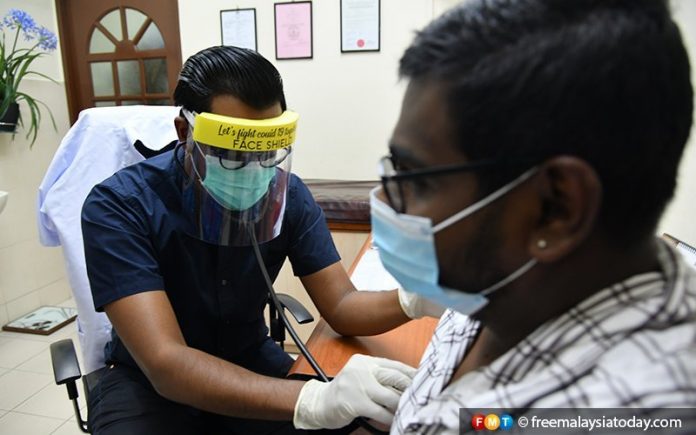
PETALING JAYA: With the rapid growth in online medication and healthcare services as a result of the Covid-19 pandemic, the Malaysian Medical Association (MMA) wants the related regulatory bodies to ensure compromise is not traded for convenience.
Noting that the increase in the number of people sourcing healthcare services and medication online now, the association has highlighted the need for such services to be properly regulated.
MMA president Dr Subramaniam Muniandy said the Malaysian Medical Council (MMC) and the National Pharmaceutical Regulatory Agency (NPRA) should conduct an audit of online healthcare services to safeguard patients.
In a statement today, he also said doctors who offer online services must be cognizant of the limits of online consultations and advise patients needing face-to-face consultations when cases warrant proper physical examinations or when communication barriers exist online.

“While online health consultations are an important adjunct during the pandemic, it must be accompanied by the highest and strictest standards of data privacy, medico legal and ethical considerations,” said Subramaniam.
“The most comprehensive approach must be taken with every consultation so that an accurate diagnosis can be made by doctors with the appropriate management instituted in the best interests of the patient.
“Convenience must never compromise the safety and health outcomes of patients,” he added.
He also warned against online consultation and prescriptions being used as a “tool of convenience” for repeated medication supply without the appropriate medical counselling and thorough assessment of the patient’s condition.
Subramaniam noted that the sale of medicine is governed by the Poison Act 1952 and its regulations, and any deviation from the Act may threaten patient’s safety.
In particular, Muniandy said the supply of medications for common chronic non-communicable diseases (NCD), such as hypertension or diabetes, must be accompanied with proper counselling, appropriate tests or examinations to ensure optimal patient health.
Subramaniam said that reviews by medical professionals at regular intervals of three to six months are important to note the efficacy of the treatment, stressing that medication should not be repeated without regular follow ups.
While the MMC already has strict ethical codes that every registered doctor in the country must comply with, Subramaniam said MMC should take the issue of online healthcare services seriously by guiding doctors and safeguarding patients — or risk appearing to be “a toothless tiger”.
“Commercialisation tactics in healthcare and online services must never compromise the strict ethical considerations required,” he said.
“While we agree that online health services are integral to provision of healthcare and its potential is yet to be fully realised by many, we insist that first and foremost, it must do no harm to patients and the public.”


